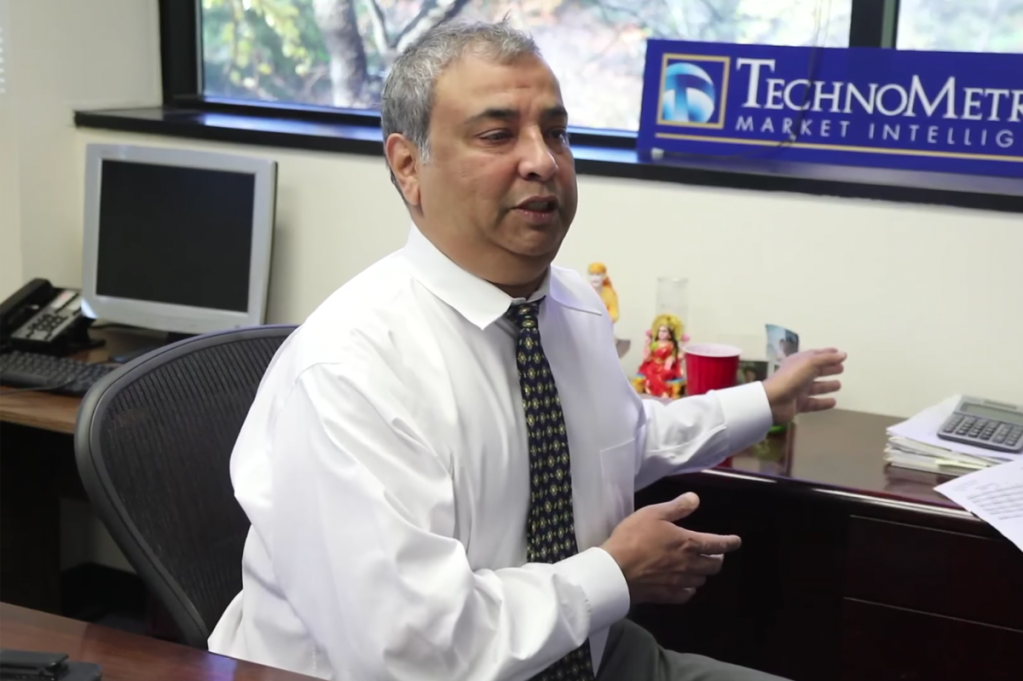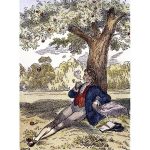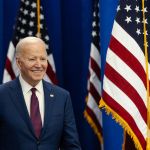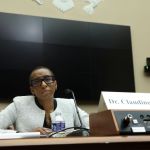The winner of this year’s presidential election may be different than the last, but the struggles of the polling industry continue.
Although, one lesser-known but historically successful poll appeared to have predicted the exact result: IBD/TIPP, headed by Raghavan Mayur, president and founder of TechnoMetrica. But Mayur, an immigrant from India with a strong Hindu faith, could care less. He’s too focused on his work to worry about the excuses of his competitors.
‘At the end of the day, there’s an Indian saying: the dancer who doesn’t know how to dance will say the stage is crooked,’ Mayur told The Spectator.
There were many prominent pollsters who couldn’t dance this election cycle, with poll after poll showing a double-digit margin of victory for Joe Biden. Mayur told The Spectator in October to expect a closer race than anticipated: and he was right. The final IBD/TIPP poll on the morning of Election Day had Biden winning by 4 percent, which is spot on with the final results.
Mayur has ignored excuses for his entire life. He had little fear when moving to the US — to him, immigration was simply the next step in his journey of life.
‘If there’s one thing that I know about America it’s that you can become what you want to as long as you are willing to put in hard work,’ he told The Spectator. ‘And I also know the downside too: if you don’t want to work, the country will punish you. I never had to fear that. I always trusted the blind faith that I had: that the country would take care of you.’
Mayur grew up in the city of Chennai towards the southern tip of India. He received his undergraduate in civil engineering in 1980 at the Birla Institute of Technology and Science — one of the most competitive universities in the world — at 21 years old, making him the youngest in his class. He went on to work as an engineer in construction in Qatar and Iraq.
Mayur later received a student visa to further his studies in the US, earning his master’s in environmental engineering at the New Jersey Institute of Technology. He then studied business at Rutgers. There, he developed an interest in statistics. One of his professors landed him a job doing market and survey research at AT&T in 1992. Within a year, he started his own market research company.
‘In my life, I never made a choice,’ Mayur said. ‘I’m not like one of those kids who knew what they wanted to do. Most of the time I was directed by unknown forces of life.’
His company eventually partnered with Investor’s Business Daily to perform polling on the business world, which later expanded to polling the presidential election starting in 2000. Since 2004, he’s correctly predicted the winner of each presidential election, being declared the most accurate in 2012 and now again in 2020.
Mayur’s company has overcome modern challenges to polling, such as a sharp decline in response rates, despite not having a major media outlet attached to his polling. But being an outsider in the polling industry, Mayur suggested, is actually a significant reason for his success.
There are two main groups in the polling industry, according to Mayur: media and academia. The most prominent polls tend to have huge media companies or universities behind them, such as ABC News or Quinnipiac University. There’s no shortage of funding, he said, so there’s less of an incentive for precision.
‘A smaller pollster like me has to survive,’ he told The Spectator. ‘And the only way to survive is to perform. If I don’t perform, my media partner will not sponsor me. If you’re hungry, you bring a certain type of insight than if you’re well-fed.’
Another issue, he suggested, is a liberal bias among pollsters, which he compared to that of the mainstream media as a whole. This, he said, leads many pollsters to think less critically about their data when it is skewed towards a Democratic candidate.
‘Most of my colleagues are liberal,’ he told The Spectator. ‘So when they see a result that shows 10 points for Biden, they say “great! Let’s run with it.” They’re living in a bubble — a liberal bubble.’
The most crucial step of polling, Mayur said, is data collection. This, he emphasized, starts with keeping surveys as brief as possible — ideally eight to 10 minutes. Many pollsters, he noted, make the mistake of writing surveys up to 15 to 20 minutes long. This can lead the respondent to lose focus and give weaker answers. Another common mistake, he said, is requiring interviewers to conduct a certain amount of surveys per hour, which can lead to a stressful and inefficient work environment. Mayur also noted that his election poll never asks for a presidential approval rating, which may pressure the respondent into a more inauthentic answer.
Next comes the data analysis, which mainly includes weighting data and incorporating a likely voter model. Weighing data allows pollsters to ensure demographics are properly represented in the poll. Likely voter models, which often vary depending on the pollster, are a way to predict which respondents actually vote. Mayur said he’s used the same model in the past five presidential elections, which is loosely based on George Gallup’s 10-point scoring system.
Mayur conducts most of the data analysis on his own. Although, he said he is guided spiritually, especially during the height of the election. He often works while listening to the Gayatri mantra, which is considered by many Hindus to be the most holy mantra in the world.
[special_offer]
‘The mantra has never let me down,’ he told The Spectator. ‘You feel you are protected by God. It puts you in the “zone” and keeps a sharp focus. Every minute of the analysis I did this season I was in the aura of the mantra playing in the background — a nonstop Youtube loop.’
Mayur remains calm amid a downpour of polling inaccuracies. While taking some pilot classes, he said he realized polling in many ways is like flying a plane in a storm.
‘Suppose there are bad weather conditions,’ Mayur said. ‘The pilot is not flying the plane looking outside — he’s looking at his instruments. The situation is always like that here: if you look out, it is always confusing with the different polls. Just look at your data.’


















